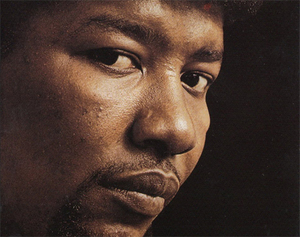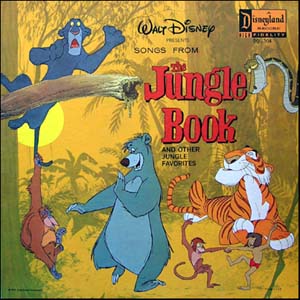A soundtrack, also written sound track, can be recorded music accompanying and synchronized to the images of a motion picture, book, television program, or video game; a commercially released soundtrack album of music as featured in the soundtrack of a film, video, or television presentation; or the physical area of a film that contains the synchronized recorded sound.
Dust Brothers are Los Angeles, California-based, songwriters and producers, E.Z. Mike and King Gizmo, famous for their sample-based music in the 1980s and 1990s, and specifically for their work on the albums Paul's Boutique by the Beastie Boys, Odelay and Guero by Beck, the soundtrack to the film Fight Club and "MMMBop" by Hanson.

O Brother, Where Art Thou? is the soundtrack album of music from the 2000 American film of the same name, written, directed and produced by the Coen Brothers and starring George Clooney, John Turturro, Tim Blake Nelson, and John Goodman.

MGM Records was a record label started by the Metro-Goldwyn-Mayer film studio in 1946 for the purpose of releasing soundtrack albums of their musical films. It soon transitioned to a pop music label which continued into the 1970s. The company also released soundtrack albums of the music for some of their non-musical films as well, and on rare occasions, cast albums of off-Broadway musicals such as The Fantasticks and the 1954 revival of The Threepenny Opera. In one instance, it even released the highly successful soundtrack album of a film made by a rival studio, Columbia Pictures's Born Free (1966).
Walt Disney Records is an American record label of the Disney Music Group. The label releases soundtrack albums from Disney's motion pictures, television series, theme parks, and traditional studio albums produced by its roster of pop, teen pop, and country artists.

United Artists Records was a record label founded by Max E. Youngstein of United Artists in 1957 to issue movie soundtracks. The label expanded into other genres, such as easy listening, jazz, pop, and R&B.
Harvest is the time of year (autumn) when most harvesting is done.
Hugo Mario Montenegro was an American orchestra leader and composer of film soundtracks. His best known work is derived from interpretations of the music from Spaghetti Westerns, especially his cover version of Ennio Morricone's main theme from the 1966 film The Good, the Bad and the Ugly. He composed the musical score for the 1969 Western Charro! which starred Elvis Presley.

William McKinley Hutchison, better known as Willie Hutch, was an American singer, songwriter as well as a record producer and recording artist for the Motown record label during the 1970s and 1980s.

Easy Rider is the soundtrack to the cult classic 1969 film Easy Rider. The songs that make up the soundtrack were carefully selected to form a "musical commentary" within the film. The album of the soundtrack was released by ABC-Dunhill Records in August 1969. It peaked at #6 on the Billboard album charts in September of that year, and was certified gold in January 1970.
A soundtrack album is any album that incorporates music directly recorded from the soundtrack of a particular feature film or television show. The first such album to be commercially released was Walt Disney's Snow White and the Seven Dwarfs, the soundtrack to the film of the same name, in 1938. The first soundtrack album of a film's orchestral score was that for Alexander Korda's 1942 film Jungle Book, composed by Miklós Rózsa. However, this album added the voice of Sabu, the film's star, narrating the story in character as Mowgli.

In the Nursery are an English neoclassical dark wave/martial industrial band, known for their cinematic sound. The duo has provided soundtracks to a variety of TV programmes and films, and is known for its rescoring of silent films.

Music from and Inspired by Spider-Man 2 is the soundtrack album for the 2004 film Spider-Man 2. As a whole, the album reached the top 10 of the U.S. album charts and the top 40 of the Australian album charts. "Vindicated" by Dashboard Confessional reached the top of a world composite soundtrack chart in June 2004 and the top 20 of a composite world and U.S. modern rock chart. "We Are" by Ana Johnsson was a major success in Europe, charting in almost every European country. "Ordinary" by Train was on the U.S. adult top 40 singles charts. "I Am" by Killing Heidi was added to the Australian version of the soundtrack and released as a single in the country. It debuted and peaked at #16 on the ARIA Charts on July 19, 2004.

"Julia" is a song performed by British pop duo Eurythmics. It was written by group members Annie Lennox and David A. Stewart for their album 1984 , which served as the soundtrack to the film Nineteen Eighty-Four, an adaptation of the political novel Nineteen Eighty-Four by George Orwell. Julia plays during the credits to the movie. The band were chosen alongside the Dominic Muldowney orchestral composition, to much controversy. The song was produced by Stewart and was the second and final single released from the album.
"Soul Man" is a 1967 song written and composed by Isaac Hayes and David Porter, first successful as a number 2 hit single by Atlantic Records soul duo Sam & Dave, which consisted of Samuel "Sam" Moore and David "Dave" Prater.

"Hold On, I'm Comin'" is a 1966 single recorded by soul duo Sam & Dave, issued on the Atlantic-distributed Stax label in 1966.

Tyrese Gibson, also known mononymously as Tyrese, is an American singer, songwriter, rapper, actor, model, VJ, screenwriter, film producer, author and television producer. He played Joseph "Jody" Summers in Baby Boy, Angel Mercer in Four Brothers, Roman Pearce in the Fast and the Furious series and Robert Epps in the Transformers film series. After releasing several albums, he transitioned into films, with lead roles in several major Hollywood releases.

The Jungle Book, the soundtrack to the eponymous Disney film, has been released in three different versions since the film's release in 1967. The film score was composed by George Bruns, with songs written by Terry Gilkyson and the Sherman Brothers.
Relativity Music Group is a record label owned by Universal Music Group to release motion picture soundtracks. It was founded in 2009 and has grown rapidly to be a strong force in soundtrack album releases around the globe.











